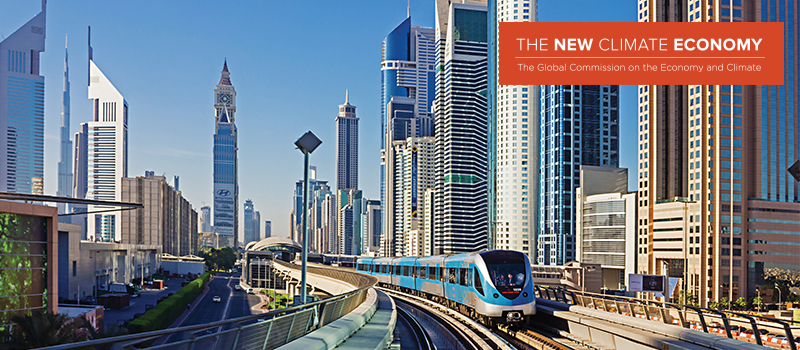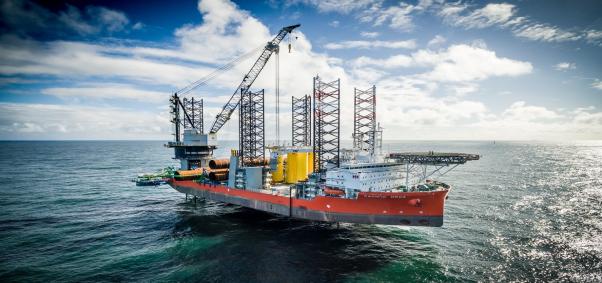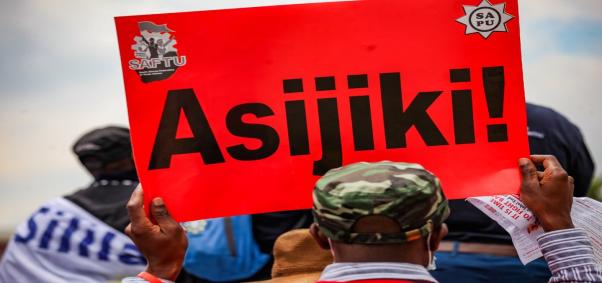
To subscribe to the New Climate Economy's monthly newsletter, sign up here.
“By doing the right thing, we can do well for the economy,” says President Calderón
Former Mexican President Felipe Calderón, Chair of the Global Commission on the Economy and Climate, delivered a keynote speech at the World Government Summit in Dubai on 10 February. He noted the encouraging developments in cities, land use, energy, infrastructure and innovation that can be scaled up to build a new climate economy.
“Here is the good news, we can get the economic growth we are looking for,” he said. The infrastructure investment finance we need for the low-carbon transition is roughly equal to that for our current high-polluting development path.
President Calderón emphasised 10 actions that can usher in a new climate economy, among them to end fossil fuel subsidies and fund other priorities like health services, enact predictable carbon pricing to align market incentives, and expand research and development for clean energy.
Paris Agreement Was a “Big Deal for the World; Good Deal for America”
Dr. Andrew Steer, President of the World Resources Institute, drew heavily from New Climate Economy research during his testimony on 2 February to members of the U.S. House Committee on Science, Space and Technology. During his remarks in support of the December 2015 Paris Agreement, Dr. Steer made the argument that America’s businesses and cities are lining up behind the agreement and taking climate action on their own. “This flood of support is indicative of a new understanding of the relationship between climate change and the economy,” he said. Dr. Steer’s testimony stood in contrast to the rest of the panel. Three other witnesses, called by the Republican majority, voiced concerns about economic impacts, climate science and the constitutionality of U.S. compliance with the Paris Agreement. A live recording of the event is available here, and WRI’s summary blog can be read here.
Good reads for a new climate economy
Too late, too sudden: transition to a low-carbon economy and systemic risk
Waiting too long to transition to a low-carbon economy will greatly increase the costs and risks, according to a new report from the European Systemic Risk Board. If all countries transition at the right pace, the adjustment costs will be manageable and the risk of stranded assets will be lower. But there are three ways that a delayed transition could affect systematic risk: the impact on GDP of sudden changes in energy use, the revaluation of carbon-intensive assets, and more frequent natural catastrophes. The Board recommends that policymakers increase disclosure of the carbon intensity of non-financial firms. This would help quantify financial firms’ potential exposure and help estimate the impact of a delayed transition on financial institutions.
Bringing clean, safe, affordable cooking energy to Kenyan households: an agenda for action
In Kenya, 76% of the population relies on traditional biomass for cooking, despite its harmful effects on health and the environment, says the Stockholm Environment Institute in a new discussion note. Kenya is already a leader within sub-Saharan Africa in developing and distributing cleaner cookstoves, but it needs to go further. It can support private-sector actors who are scaling up commercial cookstove initiatives by removing market barriers, tapping local innovation, and facilitating access to end-user finance. In particular, the unregulated charcoal market requires targeted policy measures and policy coherence between ministries to ensure more sustainable production and slow demand growth amid rapid urbanization.
There is no “one size fits all” approach to successful cookstove initiatives, but several key success factors are known. They include stove quality and features like efficiency and ease of use; finance for both end-users and stove enterprises; an enabling policy and regulatory environment; and a commercial approach.
2016 Sustainable Energy in America Factbook
New energy technologies in the U.S. made further critical advances and locked in long-term gains in 2015, according to a new study from Bloomberg New Energy Finance and the Business Council for Sustainable Energy. Clean energy made up 68% of new capacity in 2015. The de-carbonization of the U.S. power sector accelerated with record numbers of coal plant closures and record new solar photovoltaic system commissionings, while natural gas production and consumption hit an all-time high. The U.S. continued to enjoy greater benefits from energy efficiency efforts as economic growth outpaced the growth in electricity consumption. As a result, U.S. power sector CO2 emissions fell to their lowest annual level since the mid-1990s. The net impact on consumers has been negligible, as electricity and fuel prices remained historically low.
Electric vehicles expected to be 35% of global new car sales by 2040
In a new analysis, Bloomberg New Energy Finance estimates that continued growth of 60% in electric vehicle markets would displace oil demand by 2 million barrels a day as early as 2023. Reducing oil demand that much would replicate the oversupply of oil we are seeing today. If electric vehicle manufacturers overcome battery challenges by 2030 as anticipated, there could be mass adoption of electric vehicles sometime during the 2020s if oil prices are around US$50 to US$70 per barrel. Continued low oil prices would only delay mass adoption until the early 2030s.
Coal Medium-Term Market Report 2015
The growth in global coal demand halted in 2014 for the first time since the 1990s. In a new report by the International Energy Agency, China is mostly credited with this decline in coal demand, where half of global coal demand is used. While Chinese GDP grew 7.4%, power demand grew by almost half that, breaking a decade of 1:1 relationship between GDP growth and power demand. In the report, the IEA revises its global coal demand forecast downward by over 500 million tonnes coal-equivalent. Also contributing to the downward revision is ageing coal capacity, weak power demand, and strong renewable and climate policies in OECD countries. However, coal demand in Indian and ASEAN countries increased by 112 million tonnes in 2014. The IEA expects these trends to continue in 2015, likely leading to a downward trend in global coal consumption in 2015 once the reporting is completed.
NCE in the Media
Nicholas Stern wrote an op-ed on the perspective from Davos on the Paris Agreement.
- London School of Economics: Davos 2016: First Steps Along the Road from Paris, Nicholas Stern
Paul Polman wrote an op-ed on why the goal of zero emissions is a great business opportunity.
- La Nacion (Argentina): La meta de emisiones cero es una gran oportunidad de negocios, Paul Polman
Paul Polman also wrote an op-ed on how the transition to a clean economy is inevitable.
- Live Science: Why Sustainability is No Longer a Choice, Paul Polman
Helen Mountford wrote a letter to the editor on why the U.S. presidential debates in Florida should include questions on climate change and the low-carbon economy.
- Miami Herald: Include climate change in the debates, Helen Mountford
Other media hits
- Khaleej Times: Calderon Allays Fears Over Carbon Emission Controls
- Xinhua (China): UAE Summit Urges Wider Use of Green Energy Sources
- Bunker Port News Worldwide: IMO is set to Consider an Emissions Target in April
- WRI Insights: Andrew Steer tells U.S. Lawmakers: Paris Agreement is a “Big Deal for the World; Good Deal for America,” Sarah Parsons
- International Monetary Fund: The Role of Emerging Markets in a New Global Partnership for Growth, Christine Lagarde
- The Hill: Climate change: The critical topic presidential debates are leaving out, Sam Adams
- Thomson Reuters Foundation: Women are central to Africa’s energy transformation, Fiona Lambe and Marion Davis






